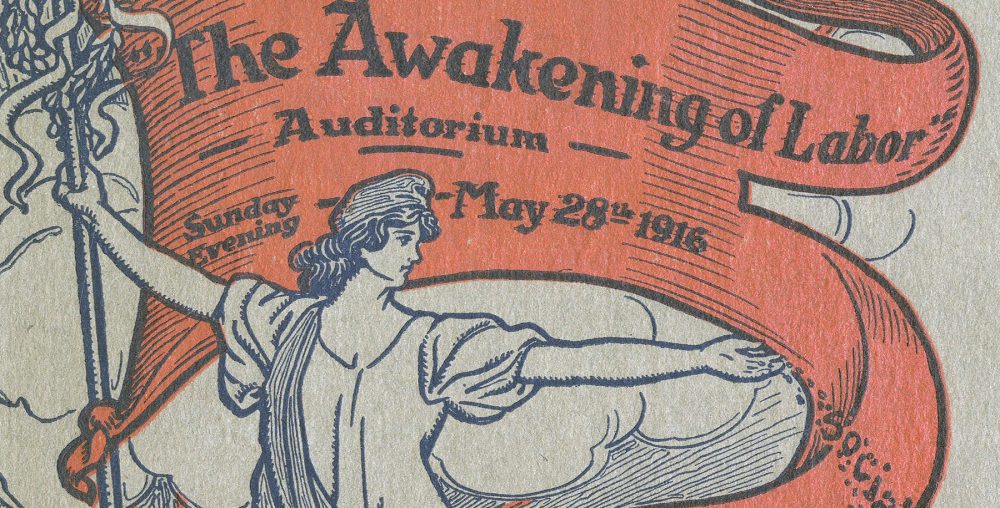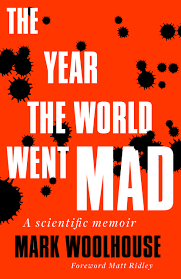‘The Year the World went Mad; a scientific memoir’, Mark Woolhouse, Sandstone Press, 2022
The working class in Ireland and Britain face dramatic cost of living crises caused by inflation, and in the UK by austerity justified by claims that the public sector deficit has dramatically increased. The BBC reports that ‘the cost of living is currently rising at its fastest rate in almost 40 years’ and that ‘the UK faces its biggest drop in living standards on record.’ This is ‘largely due to the war in Ukraine and the fallout of the pandemic’ says the BBC.
In Britain the sudden collapse of the pound following the Liz Truss/Kwasi Kwarteng budget was the result of large unfunded tax cuts that the international finance markets would not accept. One reason they did not accept them was the previous massive expenditure arising from the Covid-19 pandemic. In Britain and the North of Ireland the cost has been estimated as £376 billion, or 15 per cent of total Government debt and enough to fund over eight and a half years of a deficit that supposedly justifies the current austerity.
The war in Ukraine has resulted in sanctions by the West on Russia, which has in response limited energy supplies to the West. Sanctions have also disrupted trade and increased many commodity costs, exacerbating the inflationary effect of state expenditure during Covid and the money printed through quantitative easing. There was always going to be a price to be paid for the money spent as a result of the lockdown policy and sanctions on Russia and it is hardly a surprise that it is being imposed on working people. What should be a surprise is that the Left should have opposed incurring these costs in the first place but didn’t.
In so far as the war in Ukraine goes, much of the Left has been an echo of Western Governments, which so far have been willing to incur the pain as long as it can be transferred on to rivals and/or dumped on workers. The voices of the pro-war Left tend to mute when it comes to accepting responsibility for supporting the sanctions policy and consequent assault on working class living standards.
As far as the policy of lockdown during Covid is concerned, the problem would be massively worse had much Left advice to extend and deepen lockdown been accepted. This book by a member of the British and Scottish Governments’ Covid-19 advisory bodies is a Professor of Epidemiology and a critic of both of their pandemic policies. He is critical of the lockdown policy of both, of its health, social and economic costs, and insists there was a better way.
If his credentials are supposed to inspire confidence it should of course be remembered that there were many other scientists and medical experts who would disagree with his analysis and conclusions. Appeals to authority are not going to take you very far. It is necessary, as always, to think for yourself. His book is worth reviewing because he was an insider in the Governments’ responses and therefore in an advantageous position to recount their decisions and why they were made. He can also provide background to the pandemic and the response to it but essentially his analysis backs up what was very largely known during lockdown and which led this blog and others to reject the consensus that lockdown was the only correct response.
As to why so much of the Left supported lockdown, this in itself is no pointer to a correct policy; we long ago left the terrain of seeking comfort in majority opinion on this end of the political spectrum. Stalinism, social democracy and ultra-left sectarians have been making up the majority of it for a long time and even the last grouping almost invariably seeks maximum action by the state as the answer to immediate political and social problems, washed down with a heavy dose of scatological political prognoses based on the supposed radicalisation of the working class through a seemingly permanent capitalist catastrophe.
If capitalism is in permanent crisis then it would seem obviously impossible that the greatest political, social and health disasters are anything other than the immanent outcomes of capitalist economics and the calculated strategies of the representatives of the capitalist class. This resulted in some on the left demanding even greater lockdowns because the existing ones were either a sham or simply inadequate. This involved highlighting the potentially worst possible outcomes, repeating the greatest scares and calling for the most drastic actions.
Their recommended policy ignored the level of repression required to enforce their preferred extreme version of lockdown, and ignored the real costs of existing lockdowns and the very impossibility of achieving more restrictive enforcement. It ignored the stupidity of closing down production of goods and services while calling on the state to fund the incomes of workers who produce them so that they could buy the goods and services that they were being paid not to produce. Anything else was denounced as sacrificing lives for profit, as if under capitalism the goods and services required to produce and reproduce life could be created any other way.
From this perspective the advantage of this book is that it is not in the least concerned with much of the disputation on the left, but may be read as a critique of their proposed approach from which they might at least ask–did we get it wrong?
Forward to part 2


Pingback: ‘The Year the World went Mad’: a review (2) – 🚩 CommunistNews.net
Reblogged this on seachranaidhe1.
Pingback: Stop the War Coalition Denounces Helping Ukraine With Arms. | Tendance Coatesy